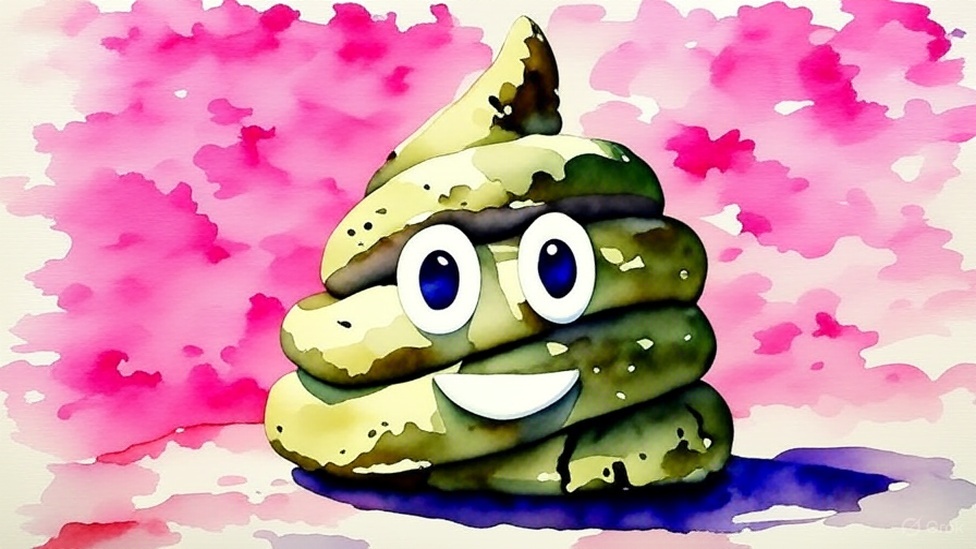So he calls up his son and says, “Son, I need you to come down and give me a hand, your mother’s gone.”
The son comes over, and together they lift her up and carry her down the stairs. Just as they reach the bottom, the son loses his grip and bumps her head on the newel post, and incredibly, she wakes up, calls them both idiots, and lets them hear about it for the next two years.
Then, one morning, the old man wakes up and finds his wife really has passed away. So he calls his son again. His son comes over, they lift her up, and start down the stairs, and the old man says, “Hang on, son… be EXTRA careful this time.”
Joke Poo: The Parrot Post
An old sea captain in a seaside shack is in his hammock one afternoon when he realizes his prized parrot, Polly, has stopped squawking… forever.
So he calls up his first mate, a gruff, one-legged fellow, and says, “One-Leg, I need you to come down and give me a hand, Polly’s gone silent.”
The first mate comes over, and together they lift Polly off her perch and head for the door. Just as they reach the threshold, the first mate’s peg leg slips on a wet patch, and Polly falls to the floor. Incredibly, she wakes up, squawks a string of obscenities learned over decades at sea, and then screeches, “Pieces of eight! Pieces of eight!” for the next two years.
Then, one morning, the old captain wakes up and finds his parrot really has passed away. So he calls his first mate again. His first mate comes over, they lift Polly off her perch, and start towards the door, and the old captain says, “Hang on, One-Leg… be EXTRA careful near the door this time. We don’t want her demanding treasure for the rest of me days!"
Alright, let’s dissect this Downeast Maine joke and see what comedic gold we can extract!
Joke Dissection:
-
Core Humor: The humor lies in the unexpected reversal. We expect a somber, grieving situation, but the wife’s accidental revival transforms it into a prolonged, nagging scenario. The final line escalates the dark humor, prioritizing avoiding a repeat of the nagging over respecting the genuine loss. It is a great subversion of expectations.
- Key Elements:
- Setting: Downeast Maine – This implies a rural, perhaps slightly old-fashioned setting. Maine stereotypes often involve stoicism and a no-nonsense attitude.
- Characters: An elderly couple and their son. The age is crucial for the "passed away" premise.
- The Newel Post Incident: The specific, absurd method of the unexpected revival.
- The Nagging Wife: The source of the punchline’s humor, fueled by irritation and a dominant personality.
- Son The son plays the ‘stooge’ to the father and mother.
Comedic Enrichment:
Let’s leverage some facts/trivia/observations related to these elements to craft a new joke/observation:
Observation inspired by Newel Posts and "Near Death" experiences:
Did you know that newel posts are often seen as architectural symbols of transition and stability? So, in a way, that newel post in the joke didn’t just revive the wife; it gave her a second chance to really nail down the role of family matriarch. It’s like the house itself was saying, "Hold on, we’re not done with her yet! Let’s get her opinion on this new paint color… and the son’s life choices… again."
A new joke, incorporating historical facts about long marriages:
An anthropologist is studying marriage rituals in Downeast Maine. He asks an elderly fisherman, "What’s the secret to staying married for 70 years?"
The fisherman spits into the harbor and says, "Well, I reckon it’s like lobstering. You bait the trap with love at first, then just hope she gets stuck in there long enough to be worth keepin’."
The anthropologist asks, "And what if she gets out?"
The fisherman replied, "Then ya better be careful not to bump her head on the dock."
"Did You Know" fact enhanced with humorous exaggeration
Did you know: That statistically, women tend to outlive men? But in the joke, the wife’s life expectancy doubled the moment she laid her head on that newel post. I bet her life insurance company called it a "Newel Post Amendment" and tripled her premiums.


